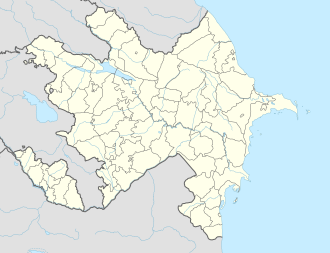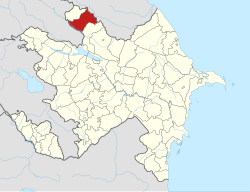Mosul | |
|---|---|
Municipality | |
| Coordinates: 41°26′40″N46°34′23″E / 41.44444°N 46.57306°E | |
| Country | |
| Rayon | Zaqatala |
| Elevation | 210 m (690 ft) |
| Population | |
• Total | 3,009 |
| Time zone | UTC+4 (AZT) |
| • Summer (DST) | UTC+5 (AZT) |
Mosul is a village and municipality in the Zaqatala Rayon of Azerbaijan. It has a population of 2,842. 80% of population is Ingiloys.


